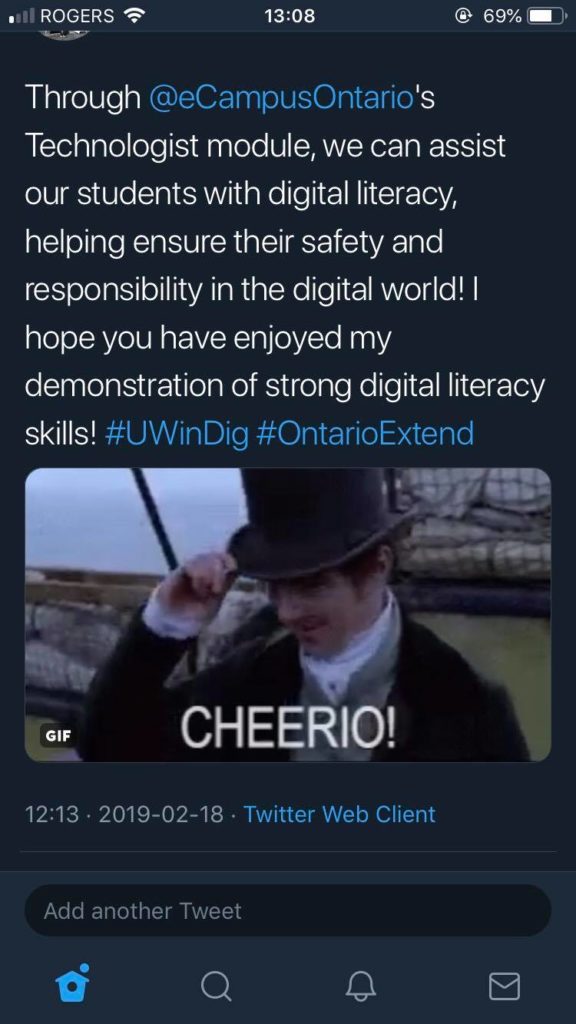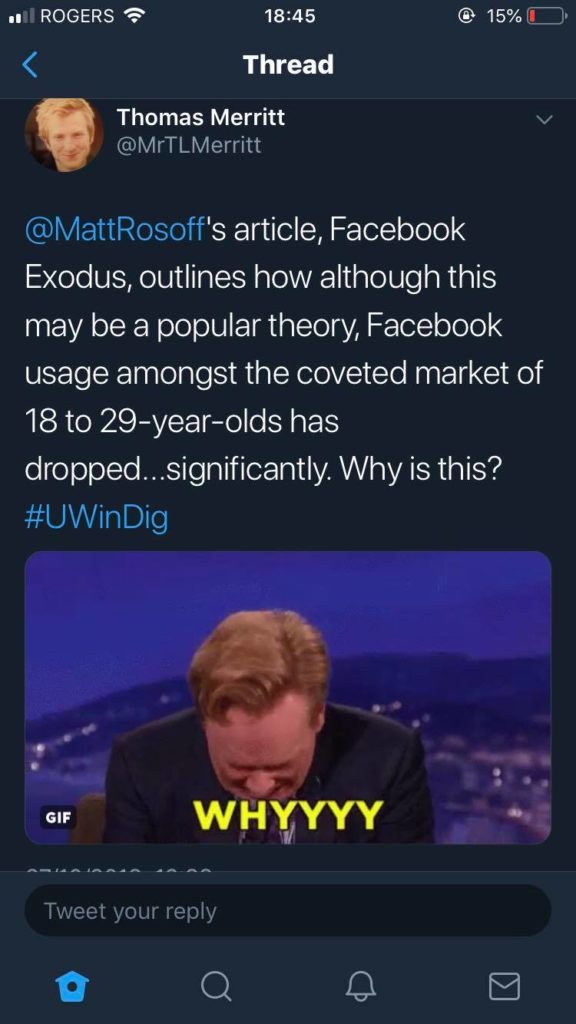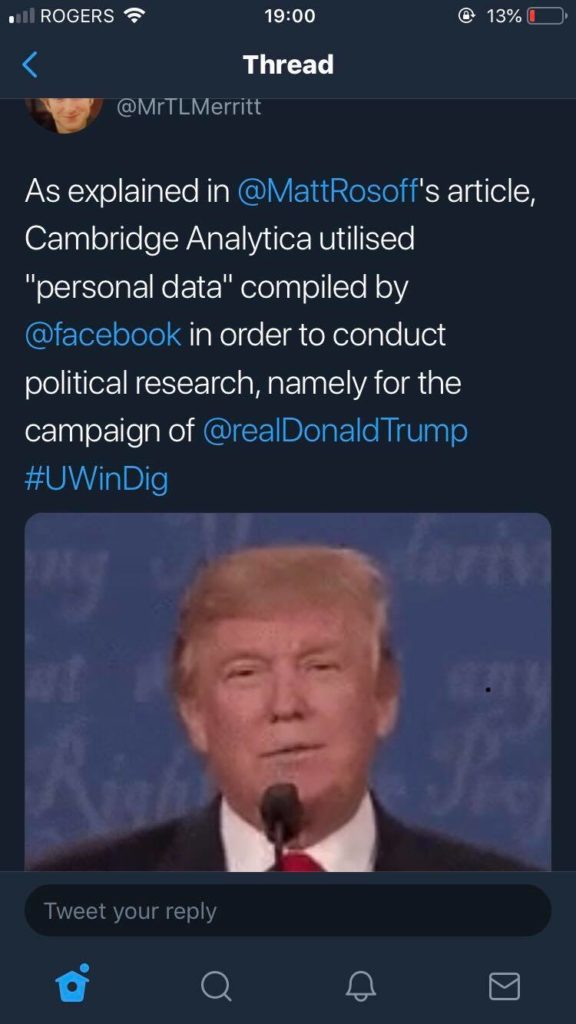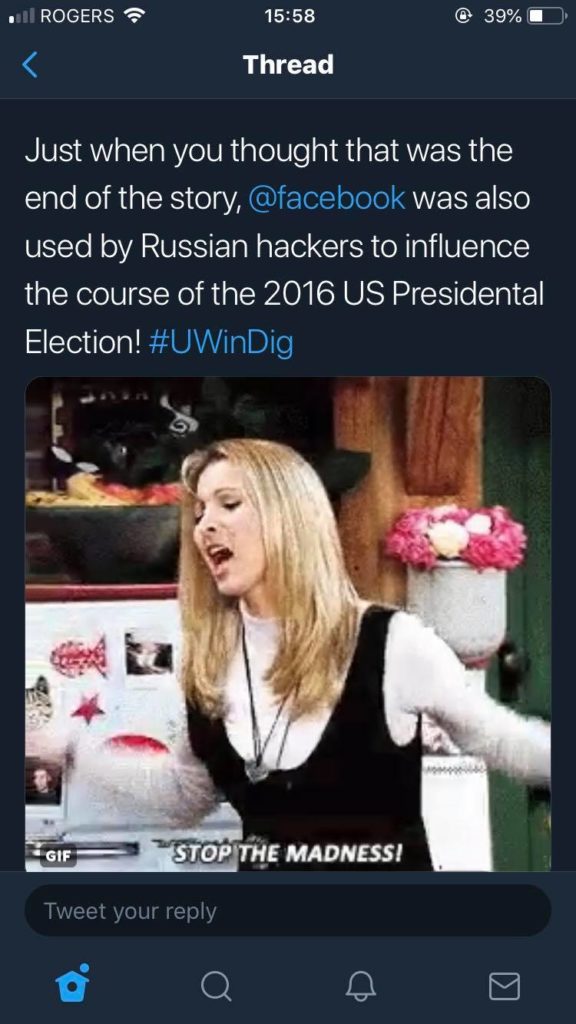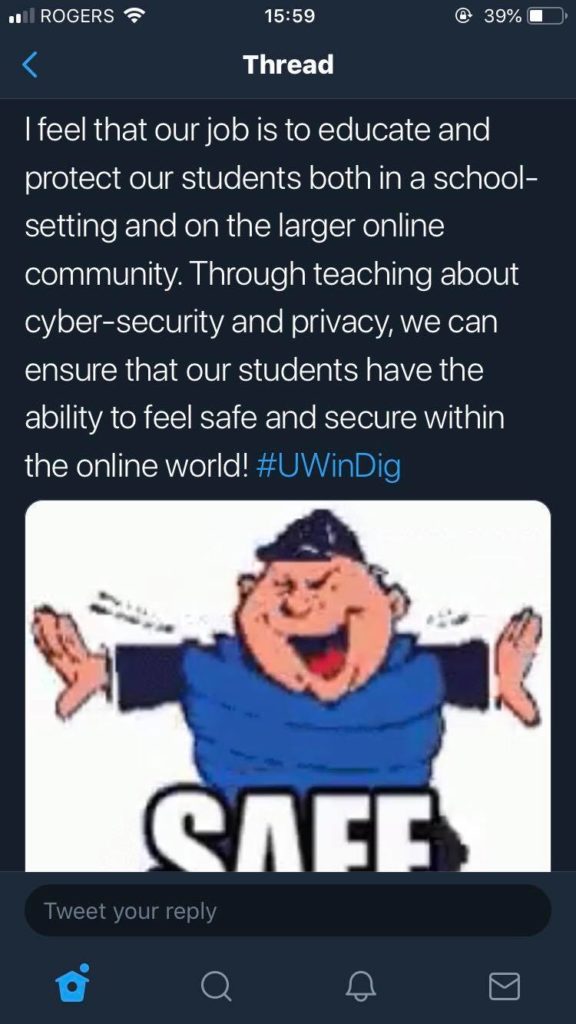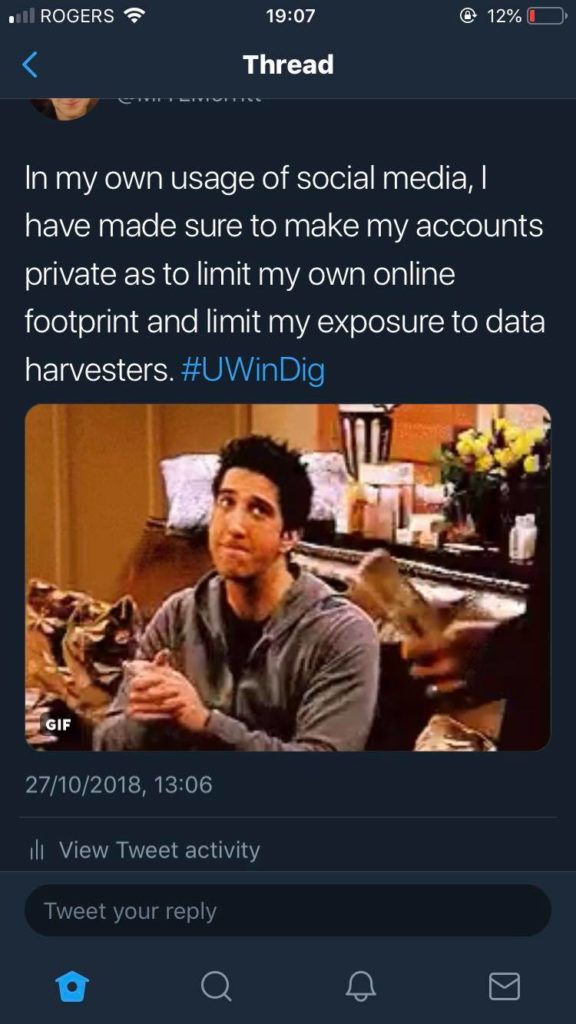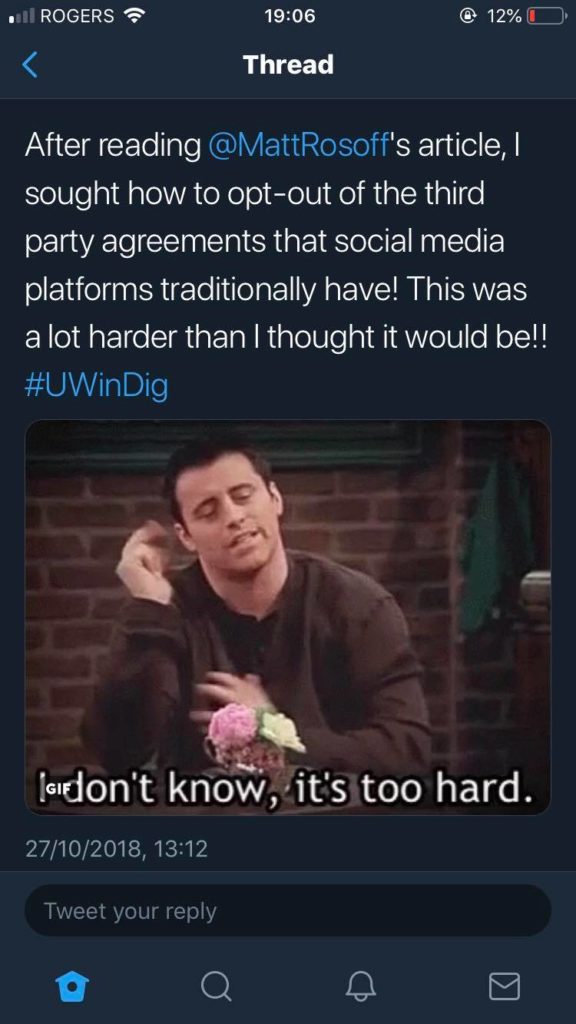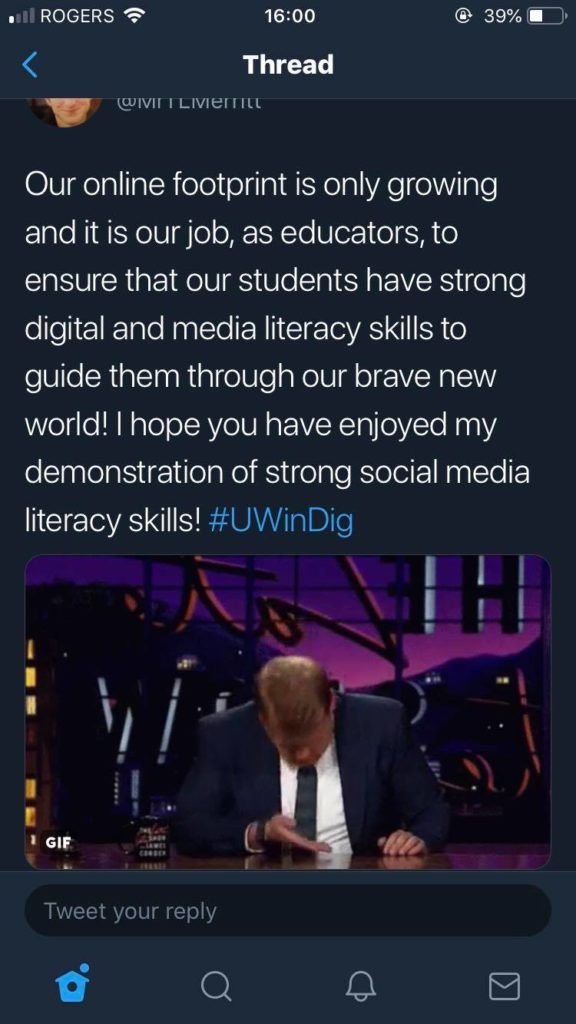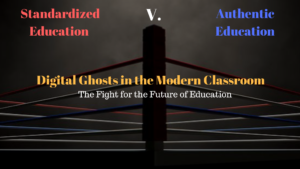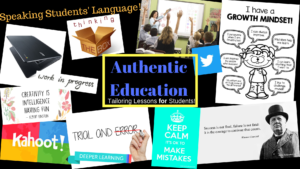As has been a seemingly constant theme within our course, our society has become increasingly dependent upon technological innovations both within our professional and personal lives. Despite this increasing dependence, users of these aforementioned technological platforms seemingly lack in-depth knowledge of the mediums that they loyally use for either personal or professional reasonings. In an attempt to end this apparent oxymoron, Ontario Extend has developed a remarkably detailed explanation designed to explain to all users of technology how to introduce a new medium to people of various ages, creeds, and academic milieus.
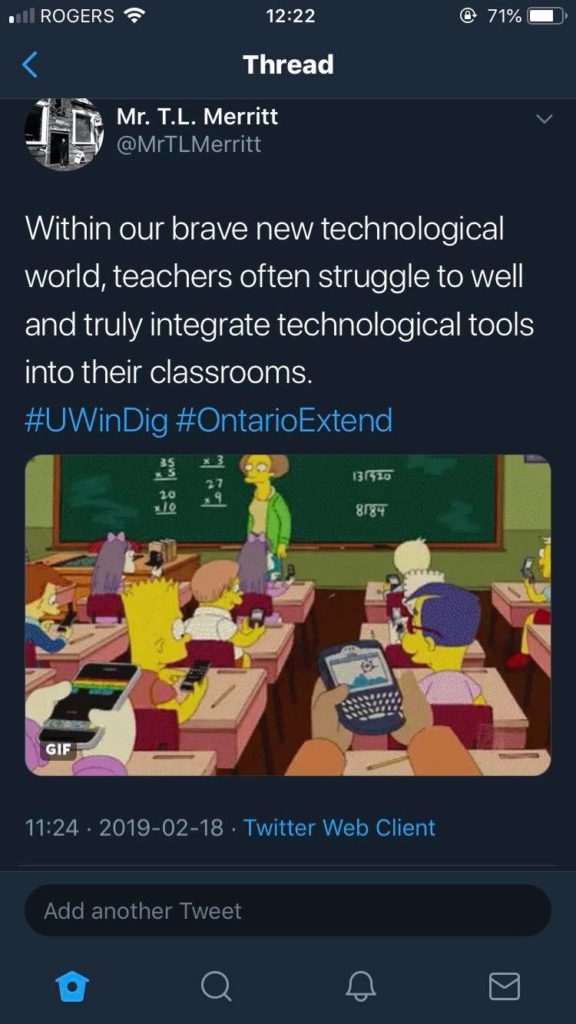
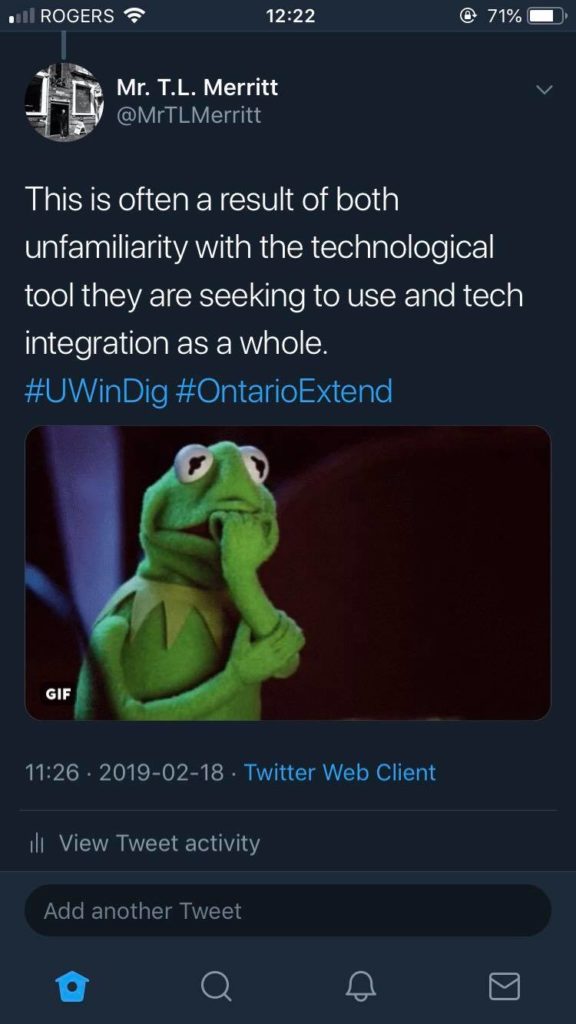
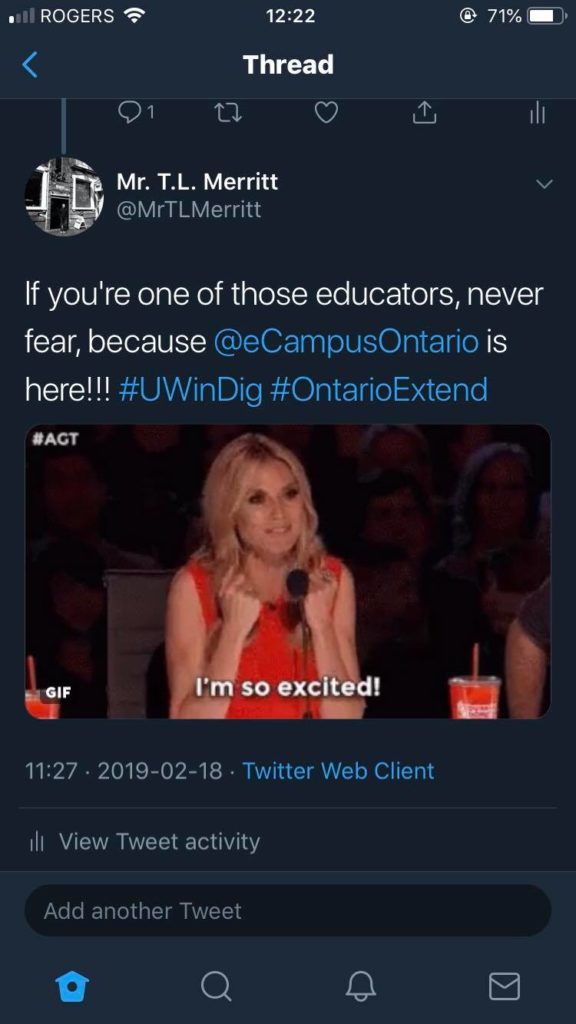
Viewed through the lens of an educator, Ontario Extend’s Technologist module has many lessons that teachers can implement in their classrooms in order to promote digital literacy amongst the students that they teach each day. Often when confronted with the notion of digital literacy, a myriad of definitions come to the forefront. Ontario Extend does not attempt to provide one solid definition of digital literacy but instead provides a myriad of exemplars of what one could consider digital literacy for our brave new technological world. By way of example, Ontario Extend offers its visitors the opportunity to engage critically with AdvanceHE’s concept of digital literacy which outlines how “digital literacies are the capabilities required to thrive…in a digital world.” Despite attempting to tackle the varying nature of digital literacy, Ontario Extend does not solely fixate on the notion of digital literacy.
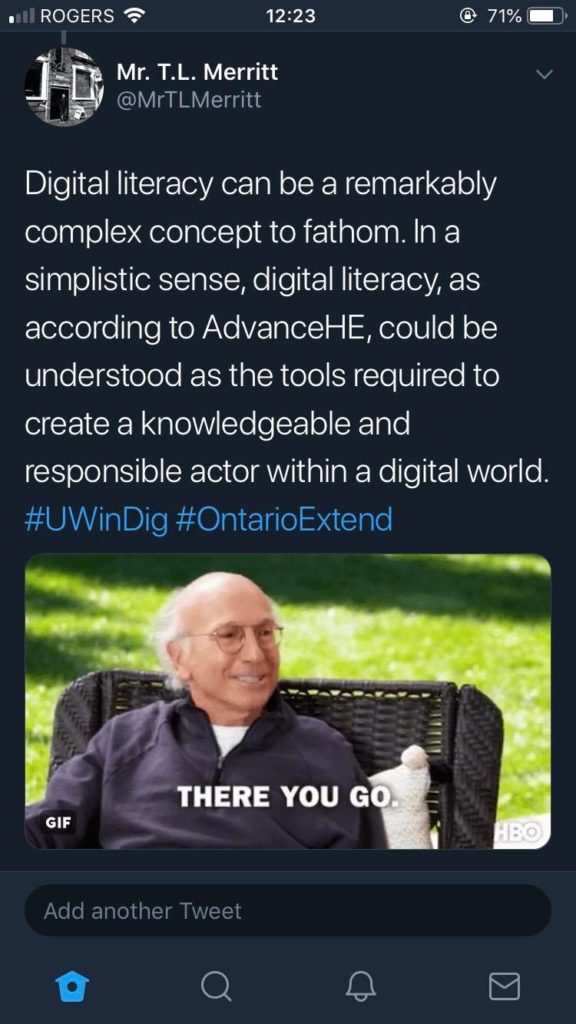
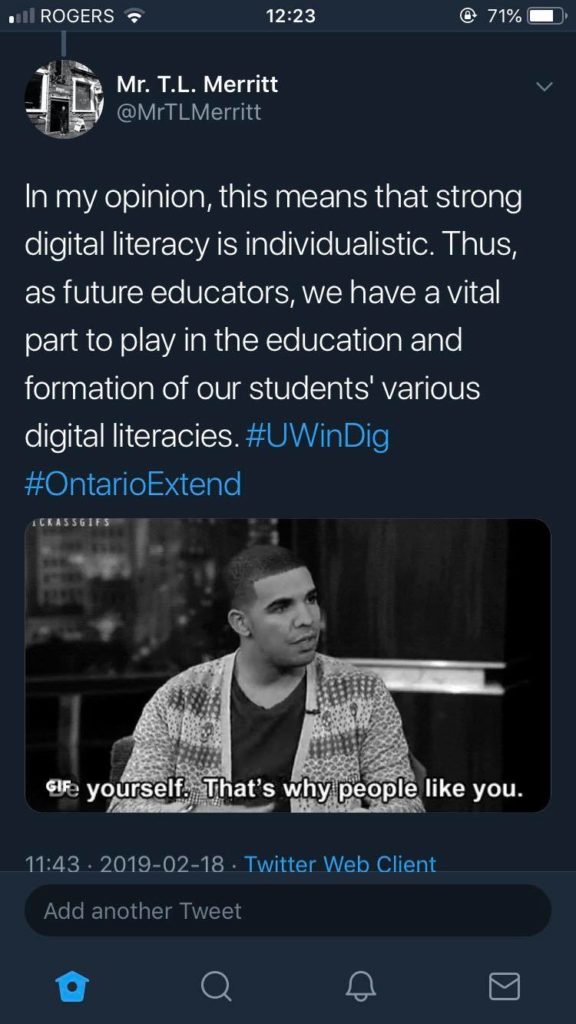
As a means of example, Ontario Extend offers an entire module to its visitors which outlines the ways in which to introduce newly created cutting edge technological forms. Direct evidence of this notion could be found through Ontario Extend’s module, which elaborates upon a seven-pillared theory towards introducing new technology to people who are unfamiliar with the particular technology in question. The aforementioned seven-pillared theory starts with the establishment of one’s own and one’s students’ digital literacies, then thoroughly examines design-thinking, empathising with students, assisting students ideate, prototype, and finally, connect. In my own opinion, integrating each of these seven pillars can greatly improve our students’ understanding of digital technology and thus, enable students to feel both safe and responsible in our increasingly digital world.
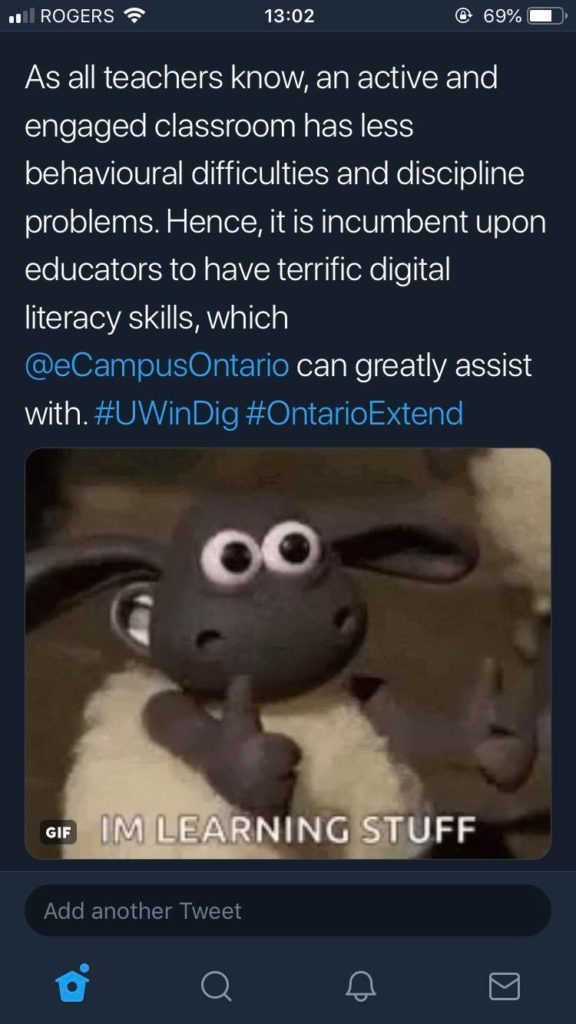
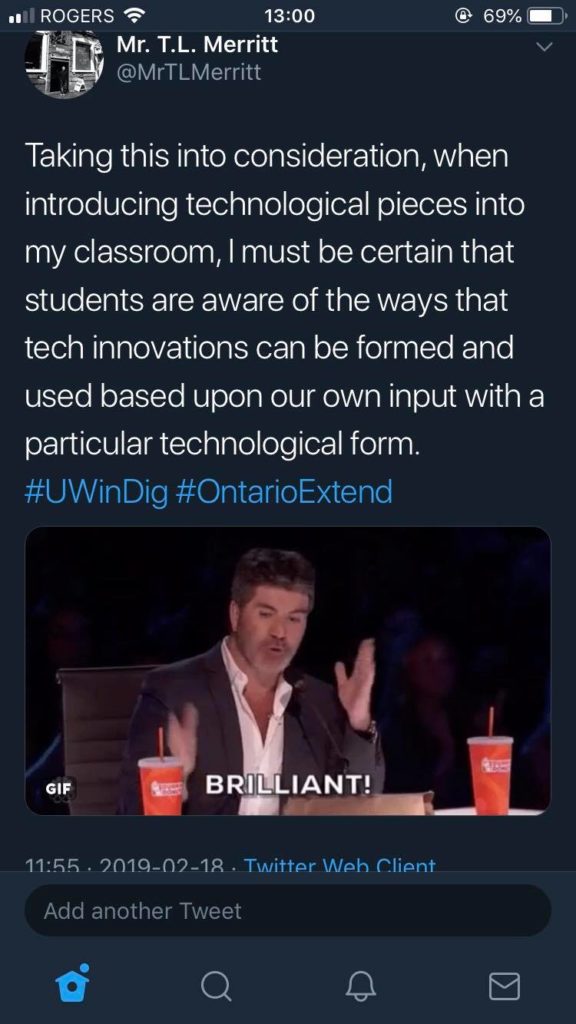
Each of the seven pillars presented within Ontario Extend’s Technologist module were successfully able to convey their overall importance to the promotion of strong technological pedagogy. Despite this, Ontario Extend’s module not only provided the necessary theory but also gave educators the steps needed to introduce these pillars into a classroom environment, thus, cementing the overall importance of Ontario Extend’s module to educators across the province of Ontario and, indeed, the rest of Canada.
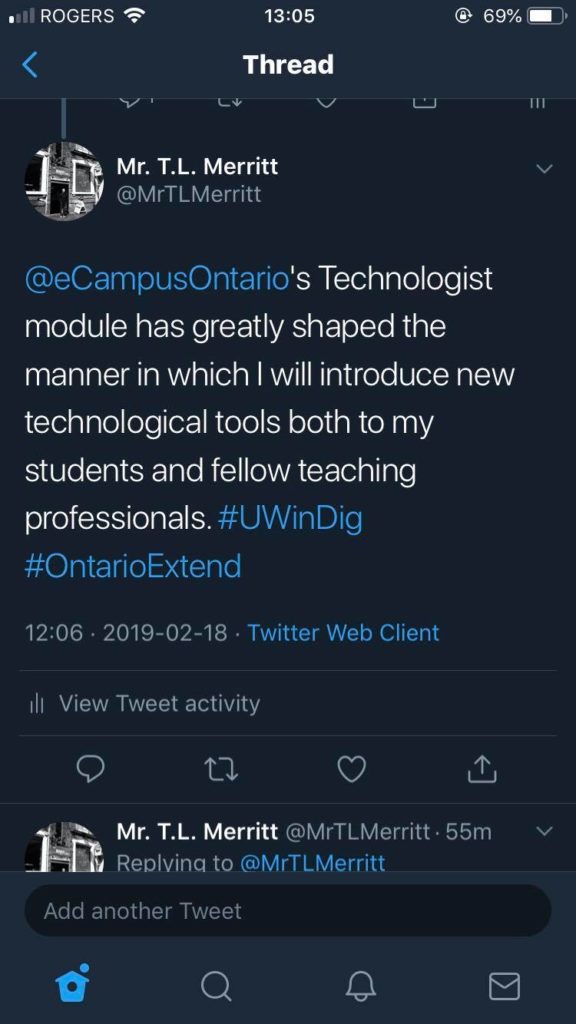
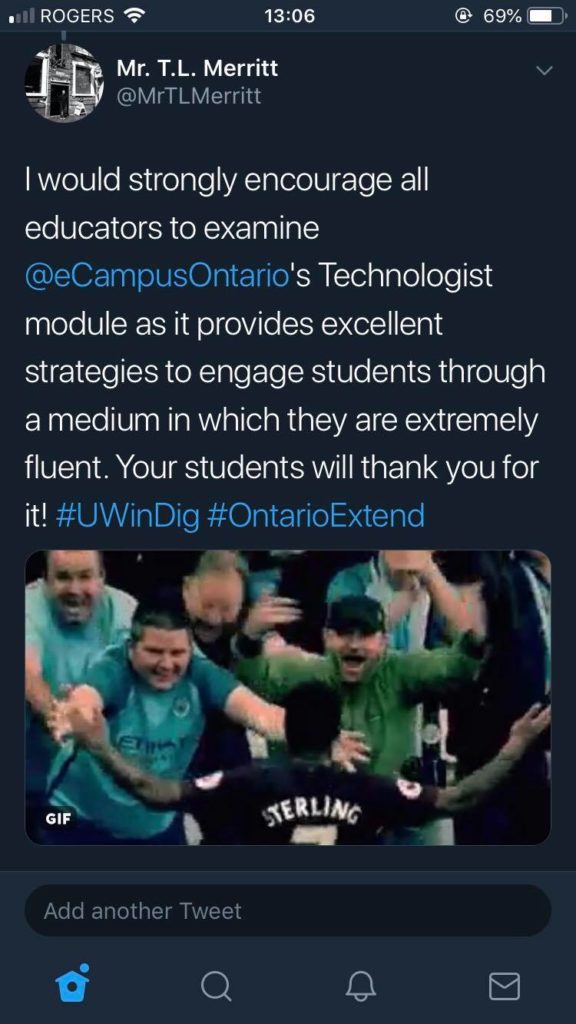
The medium that I worked with for this artefact was Twitter which I felt was conducive to presenting the main ideas presented within Ontario Extend’s module. Additionally, through Twitter, visual representations can encapsulate the content of an individual tweet which provides a twenty-first-century adaption to the saying that a picture tells a thousand words. As a platform, I found Twitter fairly easy to use once a user has gone through a period of experimentation and play! Going forward, instead of having students write longer pieces of prose, I will examine the possibility of having students compile a series of mock tweets to present their ideas on course material that we have engaged critically with.
